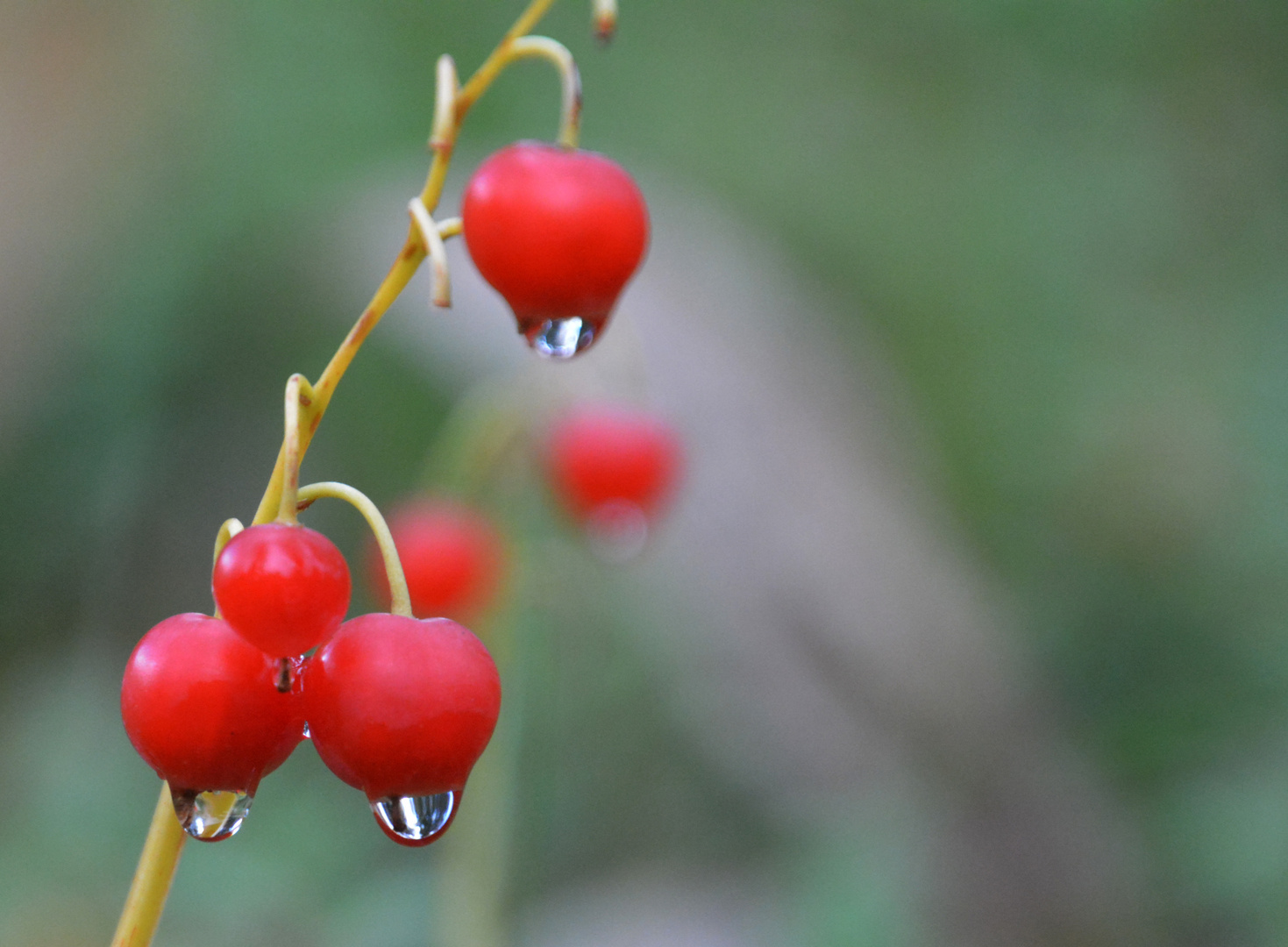The berryes of Lili of valley
Lily of the valley (Convallaria majalis /?k?nv??le?ri? m??d?e?l?s/[1]), sometimes written lily-of-the-valley,[2] is a highly poisonous[3] woodland flowering plant with sweetly scented, pendent, bell-shaped white flowers borne in sprays in spring. It is native throughout the cool temperate Northern Hemisphere in Asia and Europe.
It is possibly the only species in the genus Convallaria in the asparagus family.
Other names include May bells, Our Lady's tears, and Mary's tears. Its French name, muguet, sometimes appears in the names of perfumes imitating the flower's scent. In pre-modern England, the plant was known as glovewort (as it was a wort used to create a salve for sore hands), or Apollinaris (according to a legend that it was discovered by Apollo).
The flowers have six white tepals (rarely pink), fused at the base to form a bell-shape, 5–10 mm (0.2–0.4 in) diameter, and sweetly scented; flowering is in late spring, in mild winters in the Northern Hemisphere it is in early March. The fruit is a small orange-red berry 5–7 mm (0.2–0.3 in) diameter that contains a few large whitish to brownish colored seeds that dry to a clear translucent round bead 1–3 mm (0.04–0.12 in) wide. Plants are self-sterile, and colonies consisting of a single clone do not set seed





















Sonja Grünbauer 22/10/2019 11:40
stunning look and great composition. Greets Sonja† fotoultimo 17/10/2019 18:07
Sehr schön fotografiert.Gruß von fotoultimo
Enric Martinez 06/10/2019 20:45
Beautiful composition and great detail. Thanks for the detailed explanation. Regards RaimoDetlef Both 05/10/2019 11:51
Schöne Komposition mit den unscharfen Beeren im Hintergrund.Gruß Detlef
Verena Fotografie 04/10/2019 9:26
Very good!Regards, Verena
Solveig R. 03/10/2019 22:40
Guter Bildschnitt! Hübsch mit den Tropfen. LG Solveignorma ateca 03/10/2019 7:56
WOW super fein Gratuliere LGNormaantokieken 02/10/2019 15:10
Klasse!lg Diana